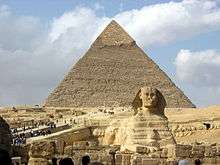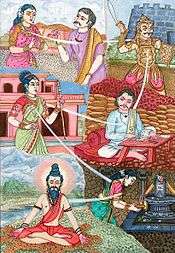


_-_Interior_-_Nave_right_part_-_Cappella_Emilei_-_Trasfigurazione_di_Cristo_di_Giambettino_Cignaroli.jpg)


Reincarnation is the philosophical or religious concept that the non-physical essence of a living being starts a new life in a different physical form or body after biological death. It is also called rebirth and is a part of the Saṃsāra doctrine of cyclic existence. It is a central tenet of Indian religions, namely Jainism, Buddhism, Sikhism and Hinduism. A belief in rebirth/metempsychosis was held by Greek historic figures, such as Pythagoras, Socrates, and Plato. It is also a common belief of various ancient and modern religions such as Spiritism, Theosophy, and Eckankar, and as an esoteric belief in many streams of Orthodox Judaism. It was part of Christian Teachings until the Emperor Justinian I, had church father Origen's (185-253) teachings banned by a synod in 553 AD. Most Jews believe in reincarnation and all Kabbalists do, along with followers of the Cathars, the Druze, Knights Templar, Freemasons and the Rosicrucians.
- Alphabetized by author or source:
A
- The whole process is expressed in Eastern philosophy by the doctrine of the Reincarnation of the individual soul. This doctrine is now accepted by a majority in the West as being possible and all Hindus and Buddhists have believed in reincarnation for thousands of years. The scientific explanation of this theory is now exposed and augments the writings of the Hindus. We know that from very ancient times it was believed by the philosophers, sages and prophets of different countries. The ancient civilization of Egypt was built upon a crude form of the doctrine of Reincarnation. Herodotus says:"The Egyptians propounded the theory that the human soul is imperishable, and that where the body of any one dies it enters into some other creature that may be ready to receive it.
- No other theory than that of Reincarnation can explain satisfactorily the causes which produce geniuses and prodigies in this world.
- Those who accept the truth of Reincarnation do not blame their parents for their poor talents, or for not possessing extraordinary powers, but they remain content with their own lot, knowing that they have made themselves as they are today by their own thoughts and deeds in their previous incarnations. They understand the meaning of the saying, "What thou sowest, thou must reap," and always endeavor to mould their future by better thoughts and better deeds. They explain all the inequalities and diversities of life and character by the law of "Karma," which governs the process of Reincarnation as well as the gradual evolution of the germs of life from lower to higher stages of existence.
- The theory of Reincarnation is logical and satisfactory. While the theory of Resurrection is neither based on scientific truths nor can it logically explain the cause of life and death, Reincarnation solves all the problems of life and explains scientifically all the questions and doubts that arise in the human mind.
- Reincarnation is not easily understood by a thoughtless child deluded by the delusion of wealth, name or fame. Everything ends with death, he thinks, and thus falls again and again under the sway of death.
- In the middle of one of the biggest, longest, noisiest, dirtiest thoroughfares in the world lives the reincarnation of a drowned princess, or rather, two hundred reincarnations of a drowned princess.
- Douglas Adams & Mark Carwardine in Last Chance to See, p. 192
- In keeping with their opinion, scholars have proposed the ingenious consolation: “Man begins to die from the moment of his birth”—a scanty and funereal comfort. But We say that man is eternally being born, and particularly at the moment of so-called death. The servitors of distorted religions encourage their wards in the purchase of places in the cemetery, where through their advance arrangements they will lie more advantageously and honorably than others more indigent and hence undeserving of lengthy prayers. The incense for these poor ones will be adulterated and the prayers abominably sung. Ask people, finally, what authentic Teaching has enjoined this monstrous practice? Verily, we have had enough of graves, cemeteries, and intimidations! One may know how loftily the Teachers have regarded the transition to future manifestations, and least of all have They been concerned about a cemetery site.
The attitude toward death is a very important indicator of the character of the Teaching, for in it is contained the understanding of reincarnation. I urge you to consider reincarnation strictly scientifically. If you can propound any other structure of the universe, We shall reserve for you a chair as professor of theology and promise you a first-class funeral; for indeed in the eyes of the enlightened you will have already decided to die. Read attentively the writings of the Teachers... and you will be amazed at how unanimously in all ages They speak about the change of life. The Path of Light will appear when you venture to look scientifically and without prejudices. 334.- Agni Yoga, Leaves of Morya’s Garden II, (1925)
- From remote times people have been accustomed to fear so-called death. They were always intimidated by hell, and at the same time were not told about the meaning of perfectment. We entrust Our co-workers to repeat as much as they can to people about the great Eternity and the continuity of life (reincarnation)...
- Agni Yoga, Supermundane, #44, (1938)
- My whole belief system is that our paths are drawn for us. I believe in reincarnation. I believe we're here to learn and grow. We choose how we come into this life based on what it is we have to learn. Some people have harder lessons than others.
- Gillian Anderson, in Movieline Magazine "Gillian of the Spirits" (January, 1999)
- Thus it seems right to conclude that the [Roman Catholic Church's] ban on the teaching of reincarnation is based on historical misrepresentation and has no ecclesiastical authority. It was in fact a fait accompli, brought about by Justinius, which no-one within the Christian church has dared to challenge in the course of some 1500 years. What is worse is that the subject has been totally ignored, as a glance at any encyclopaedia will show.
- Peter Andreas in Jenseits von Einstein: D. Suche nach d. Schicksalsforme, Germany (1978) in Share International magazine
B
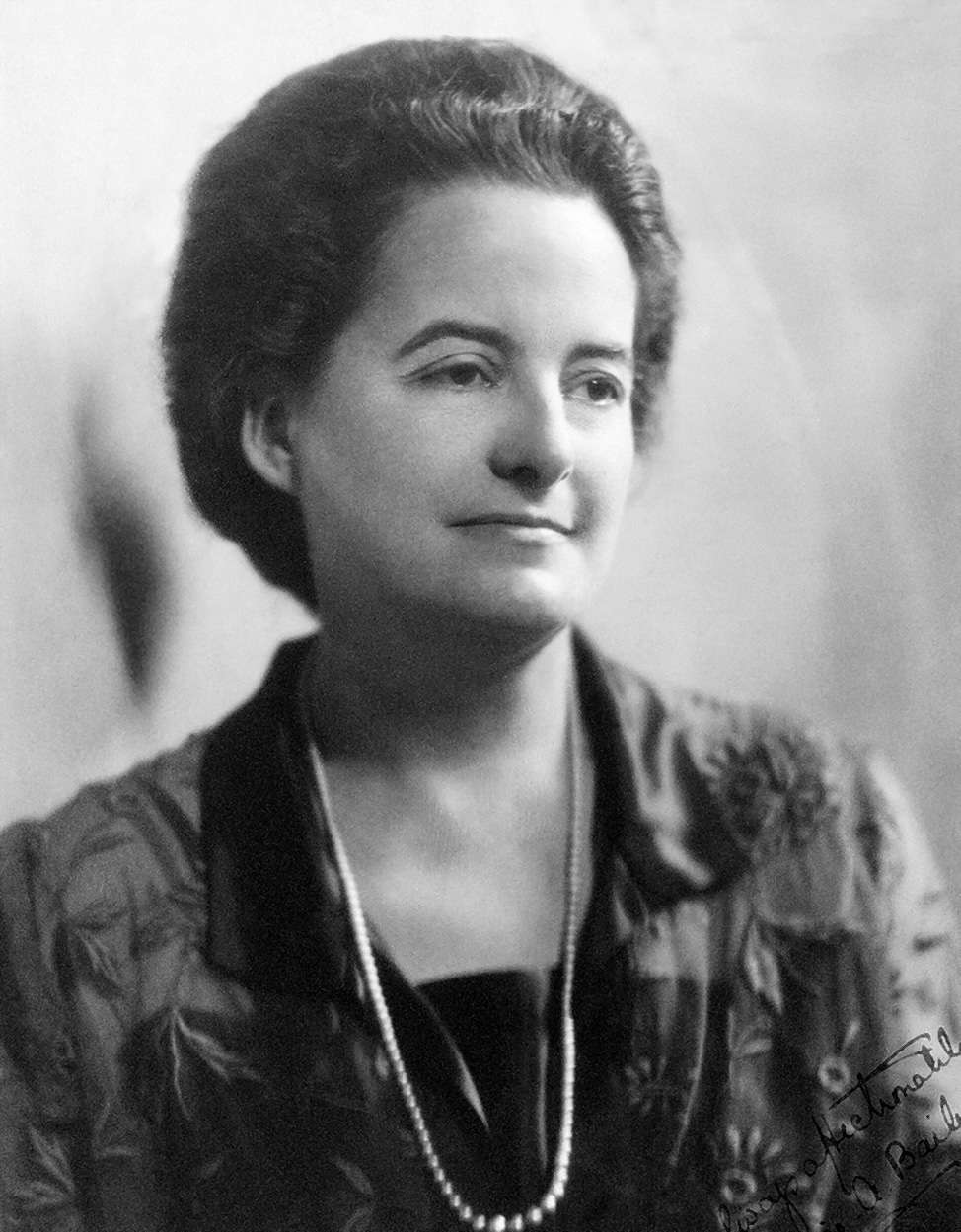
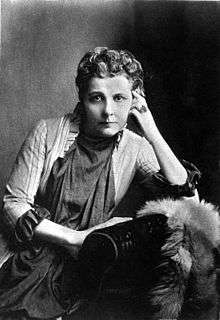
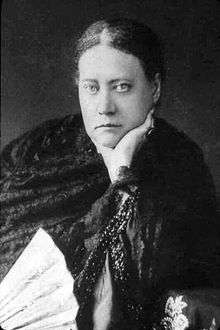
- All souls incarnate and re-incarnate under the Law of Rebirth. Hence each life is not only a recapitulation of life experience, but an assuming of ancient obligations, a recovery of old relations, an opportunity for the paying of old indebtedness, a chance to make restitution and progress, an awakening of deep-seated qualities, the recognition of old friends and enemies, the solution of revolting injustices, and the explanation of that which conditions the man, and makes him what he is. Such is the law which is crying now for universal recognition.
- Alice A. Bailey, in Esoteric Psychology Vol 1, p. 300, (1936)
- The new psychology must inevitably be built upon the premise that this one life is not man's sole opportunity in which to achieve integration and eventual perfection. The great Law of Rebirth must be accepted, and it will then be found to be, in itself, a major releasing agent in any moment of crisis, or any psychological problem case. The recognition of a further opportunity, and a lengthened sense of time, are both quieting and helpful to many types of mind.
- Alice A. Bailey, in Esoteric Psychology Vol 2, p. 431, (1953)
- Practically all the teaching given anent rebirth or reincarnation, has emphasised the material phenomenal side, though there has always been a more or less casual reference to the spiritual and mental gains acquired in the school of life upon this planet, from incarnation to incarnation. The true nature of the unfolding awareness, and the growth of the inner consciousness of the true man, have been little noted; the gain of each life in added grasp of the mechanism of contact, and the result of increased sensitivity to the environment, are seldom if ever stressed.
- Alice A. Bailey, in Esoteric Psychology Vol 2,] p. 432, (1941)
- The entire subject of rebirth is but little understood at present. Its modern interpretation, and the emphasis which has been laid so strongly on small and unimportant details, have distorted and diverted the wide sweep of the subject and ignored the true import of the process; the broad general lines of the incarnation process, have been largely overlooked... in the puerile reconstruction of the past lives of theosophically inclined people (none of them based on any truth), the real truth and the real beauty of the theme have been lost to sight.
- Alice A. Bailey, in Esoteric Astrology, p. 316/7, (1951)
- The theory of reincarnation, so familiar to all my readers, is becoming increasingly popular in the Occident; it has always been accepted (though with many foolish additions and interpretations) in the Orient. This teaching has been as much distorted as have the teachings of the Christ or the Buddha or Shri Krishna by their narrow-minded and mentally limited theologians. The basic facts of a spiritual origin, of a descent into matter, of an ascent through the medium of constant incarnations in form until those forms are perfect expressions of the indwelling spiritual consciousness, and of a series of initiations at the close of the cycle of incarnation, are being more readily accepted and acknowledged than ever before.
- Alice A. Bailey, in Esoteric Healing, (1953)
- There is, of course, no doubt that the great historical religions of the East included the teaching of Reincarnation as a fundamental tenet. In India, as in Egypt, Reincarnation was at the root of ethics. Among the Jews it was held commonly by the Pharisees, and the popular belief comes out in various phrases in the New Testament, as when John the Baptist is regarded as a reincarnation of Elijah or as when the disciples ask whether the man born blind is suffering for the sin of his parents or for some former sin of his own. ...The philosophic Gnostics and Neo-Platonists held it as an integral part of their doctrine. If we glance to the Western Hemisphere we meet Reincarnation as a firmly rooted belief among many of the tribes of North and South America. The Mayas, with their deeply interesting connection in language and symbolism with ancient Egypt, held the traditional doctrine...
- Annie Besant, in Reincarnation, Theosophical Manual, p. 6, (1892)
- The reader of Schopenhauer will be familiar with the aspect taken by Reincarnation in his philosophy. Penetrated as was the great German with Eastern thought from his study of the Upanishads, it would have been passing strange had this corner-stone of Hindu philosophy found no place in his system. Nor is Schopenhauer the only philosopher from the Intellectual and mystical German people who has accepted Reincarnation as a necessary factor in Nature...
It is interesting to note that the mere idea of Reincarnation is no longer regarded in the West— at least by educated people—as absurd... Regarding it myself as, to me, a proven fact, I am concerned rather to put it forward on these pages as a probable hypothesis, throwing more light than does any other theory on the obscure problems of man's constitution, of his character, his evolution, and his destiny. Reincarnation and Karma are said by a Master [of Wisdom] to be the two doctrines of which the West stands most in. need; so it cannot be ill done for a believer in the Masters to set forth an outline, for the ordinary reader, of this central teaching of the Esoteric Philosophy.- Annie Wood Besant, in Reincarnation, , p. 8, (1892)
- The theory of Reincarnation, then, in the Esoteric Philosophy, asserts the existence of a living and individualised Principle, which dwells in and informs the body of a man, and Which, on the death of the body, passes into another body, after a longer or shorter interval. Thus successive bodily lives are linked together like pearls strung upon a thread, the thread being the living Principle, the pearls upon it the separate human lives... In the light of reincarnation life... becomes the school of the eternal Man within us, who seeks therein his development, the Man that was and is and shall be, for whom the hour will never strike.
- Annie Wood Besant, in Reincarnation, (1892)
- The great philosopher Plato wrote an allegory in the last book of his Republic about souls making themselves ready to come back to earth again. Each one, he said, had a choice as to when and where to be born, but that choice must always be in accord with the soul's capacities and needs. So it is really a matter of being drawn naturally to the environment best suited to the soul, as provided by parents, family, and nation.
It would, however, be a mistake to think that one who held reincarnation to be true would therefore judge men by their environments - a pleasant environment meaning that they were "good souls," and an unpleasant one meaning that they were "bad souls." The greatest of men often take upon themselves the most difficult and apparently unrewarding tasks for reasons which they themselves must understand much more clearly than can those around them. So it might be for souls who are resting between births: some souls might be drawn to a very difficult family situation and take up such a burden, knowingly.
If there is a soul in man, assuredly it does not think in terms of physical wealth or personal ambition, nor care about what the short-sighted part of man's nature calls success or failure.- H.P. Blavatsky in What is death? (~1888)
- Some people have felt that they could not consider seriously the possibility of reincarnation because they do not remember their past lives. Yet what of the victims of amnesia, who carry with them the results of many things done by them in a past which they cannot remember? If men are reborn, it would, as a matter of fact, be impossible to expect an entirely new body to retain and give expression to the details recorded by a different physical brain hundreds of years ago. The idea suggested by reincarnation is that the soul, not the brain, continues to live. And what is a "soul"? If the word has any meaning at all, it must stand for those unique qualities of character which distinguish us, far more than any physical differences, from our fellow human beings. And our most important qualities do not depend upon the memory of the brain. Our most important qualities are our attitudes of mind, formed through experience provided by brain, yet retained as moral instincts rather than as specific memories.
- H.P. Blavatsky in What is death? (~1888)
- Those who hold the idea of reincarnation in their minds see that it brings them calm, and that the idea is sensible. Death is neither to be feared nor envied. The "dead" are neither greater nor less than those of us who are now alive. The dead will live again and we shall die again always the same real persons which we make ourselves, yet always expressing different parts of our natures in different states and conditions of consciousness. It is moreover possible to think that we may be reunited with those we have loved, when there is a strong enough reason for this occurring; and that we may be born in the sort of environment which will help us to find each other again in another life.
- H.P. Blavatsky in What is death? (~1888)
C
- I must confess that there was a time earlier in this present life when I blandly assumed that at least some persons might attain to this high pinnacle in one short life. But I had serious doubts about my own ability to make it. In those days I had no conscious understanding of reincarnation. So when I read Jesus' startling statement in Matt. 5:48:You, therefore, must be perfect, as your heavenly father is perfect, I was deeply troubled by what seemed to be an unreasonable demand; something impossible of attainment. Now I realize that He was referring indirectly to rebirth, so that we have whatever number of lives we need to achieve that high standard of perfection
- If he came back, Carville said: I used to think if there was reincarnation, I wanted to come back as the president or the pope or a .400 baseball hitter. But I now want to comeback as the bond market. You can intimidate everybody.
- James Carville noting the power of the bond market during Clinton administration, quoted in Systemic Liquidity Risk and Bipolar Markets: Wealth Management in Today's ..., p. 147
- The principal point of their [Druids] doctrine is that the soul does not die and that after death it passes from one body into another.
- Julius Caesar on Druids, in Encyclopaedia of Sects and Religious Doctrines, p. 395
- With regard to their actual course of studies, the main object of all education is, in their opinion, to imbue their scholars with a firm belief in the indestructibility of the human soul, which, according to their belief, merely passes at death from one tenement to another; for by such doctrine alone, they say, which robs death of all its terrors, can the highest form of human courage be developed.
- Julius Caesar on Druids in World Religions and the New Era of Science, quoted by Jarnail Singh, p. 172
- We travel with the same clan over and over again, from one life to the next, until some ultimate purpose is fulfilled and we no longer need to return. When we Illuminate the road back to our ancestors, they have a way of reaching out, of manifesting themselves...sometimes even physically.
- Raquel Cepeda, in Bird of Paradise: How I Became Latina, p. xiii
- No; I don't see any mechanism that would make it possible. However, I'm always paraphrasing J.B.S. Haldane, "The universe is not only stranger than we imagine, it's stranger than we can imagine."
- Arthur C. Clarke when asked about reincarnation, Arthur C. Clarke On Life
- One of the great tragedies of our present outlook on existence is our attitude to that recurring event which we call death. We approach it, for the most part, with fear and loathing, seeking by every means to resist its call, prolonging, often beyond its usefulness, the activity of the physical body as a guarantee of ‘‘life.’’ Our dread of death is the dread of the unknown, of complete and utter dissolution, of being ‘‘no more.’’ Despite the vast amount of evidence gathered over the years by the many Spiritualist groups that life of some kind continues after death; despite the intellectual acceptance by many that death is but an awakening into new and freer life; in spite of the growing belief in reincarnation, and notwithstanding the testimony of the wisest Teachers down the ages, we continue to approach that great transition with fear and trepidation.
What makes this attitude so tragic is that it is so far from the reality, the source of so much unnecessary suffering. Our fear of death is our fear that our identity will be obliterated. It is this which terrifies. Did we but realize and experience our identity as an immortal Being which cannot die or be obliterated, our fear of death would vanish.- Benjamin Creme in Maitreya's Mission Vol 1, p. 250, (1986)
- It seems obvious that a true realization of the implications of reincarnation (and not simply an intellectual acceptance) will transform the whole Western approach to reality. The idea that life is not short, brutish and arbitrary; that there is purpose and plan; that we are undergoing a process of gradual perfectionment; above all that the great Law of Cause and Effect governs our existence, must change our viewpoint. The need for right human relationships, for harmlessness, will become abundantly clear.
- Benjamin Creme in Maitreya's Mission Vol 1, p. 271, (1986)
- Is it of value to know our past lives? After a certain point: yes. Before that point, not only is it not of major value, it can actually be dangerous. There is a little-known law that when we become truly aware of our past life we enter into the karma of that time. Most of us have a heavy enough load of karma to deal with in this life without an unnecessary load from some previous one.
- Evolutionary progress is based on the process of rebirth; reincarnation is the method of our evolution of consciousness... through two great Laws: the Law of Rebirth and the Law of Cause and Effect... very simply the process by which you reap what you sow... The effects from our previous deeds, good and bad, create the conditions of our life today, and the results of our deeds today create the conditions of the next period... Once you are a human being, you go on being a human being until you become a superhuman being, a Master... Everybody has incarnations as both men and women. Not necessarily alternately, you might have two or three incarnations as a man, and then three or four as a woman, then one or two as a man, and so on.... There is no escape until you have learned to be perfect... in the sense that the Masters are perfect, which is having complete control of your physical, emotional, mental and spiritual nature.
- If you really believe in reincarnation, if it is part of your consciousness — rather than an idea which you think is reasonable to accept — if you take it quite seriously, it removes the fear of death to a large extent.
- It takes hundreds of thousands of incarnational experiences (lifetimes) to come up to the first initiation, the first of five (necessary to become a Master). Usually, it takes an average of seven or eight incarnations between the first and second initiation. Between the second and third the whole process speeds up... So, there are very few lives in the last phase of the initiatory process, but up to the first initiation there are literally hundreds of thousands of incarnations.... [My] Information about reincarnation comes largely from two sources: the Hierarchy of Masters, through disciples like H. P. Blavatsky and Alice Bailey, whose information always stresses the large number (hundreds of thousands) of incarnational experiences necessary to complete the course of evolution on this planet.
- Benjamin Creme in [Maitreya's Mission, Vol. III, Share International,] (1997) p. 592/3
D

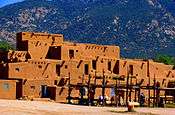
- Death has no power the immortal soul to slay, That, when its present body turns to clay, Seeks a fresh home, and with unlessened might Inspires another frame with life and light.
- John Dryden, quoted in "Reincarnation" by Swami Abhedananda.
- Poem on Pythagoras
Death, so called, is but older matter dressed
In some new form. And in a varied vest,
From tenement to tenement though tossed,
The soul is still the same, the figure only lost.- Dryden, in Ovid quoted in "Reincarnation" by Swami Abhedananda.
- Reincarnation is an intrinsic part of many Native American and Inuit traditions.
- Heinz Duthel, in Kathoey Ladyboy, p. 239
- Indian discussion of reincarnation enters the historical record from about the 6th century BCE, with the development of the Advaita Vedanta tradition in the early Upanishads (around the middle of the first millennium BCE), Gautama Buddha (623–543 BCE)[28] as well as Mahavira, the 24th Tirthankara of Jainism.
- Heinz Duthel, in Kathoey Ladyboy, p. 216
- The systematic attempt to attain first-hand knowledge of past lives has been developed in various ways in different places. The early Buddhist texts discuss techniques for recalling previous births, predicated on the development of high levels of meditative concentration.
- Heinz Duthel, in Kathoey Ladyboy, p. 216
E
- The soul comes from without into the human body, as into a temporary abode, and it goes out of it anew... it passes into other habitations, for the soul is immortal.
F
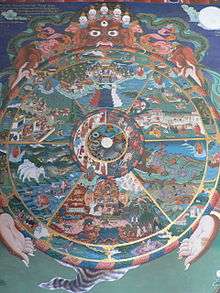
- I'd rather believe in reincarnation than hell. The idea of an afterlife is much so more tolerable when returning is an option.
- Deborah Feldman, in Unorthodox: The Scandalous Rejection of My Hasidic Roots, p. 105
- The second half of the first millennium BCE was the period that created many of the ideological and institutional elements that characterize later Indian religions. The renouncer tradition played a central role during this formative period of Indian religious history.
- Gavin Flood, in The Blackwell Companion to Hinduism, p. 273
- ....Some of the fundamental values and beliefs that we generally associate with Indian religions in general and Hinduism in particular were in part the creation of the renouncer tradition. These include the two pillars of Indian theologies: samsara – the belief that life in this world is one of suffering and subject to repeated deaths and births (rebirth); moksha/nirvana – the goal of human existence, and therefore, of the religious quest is the search of liberation from that life of suffering.
- Gavin Flood, in “The Blackwell Companion to Hinduism”, p. 273
- A third alternative is that the origin of transmigration theory lies outside of Vedic or Sramana traditions in the tribal religions of the Ganges valley, or even in Dravidian traditions of South India.
- Gavin Flood, in An Introduction to Hinduism, p. 86
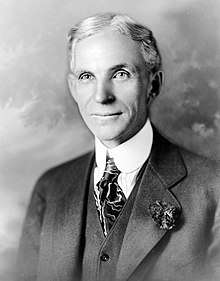
- I adopted the theory of Reincarnation when I was twenty six. Religion offered nothing to the point. Even work could not give me complete satisfaction. Work is futile if we cannot utilize the experience we collect in one life in the next. When I discovered reincarnation it was as if I had found a universal plan.
- I believe we are reincarnated. You, I, we reincarnate over and over. We live many lives, and store up much experience. Some are older souls than others and so they know more. It seems to be an intuitive "gift." It is really hard-won experience.
- I realised that there was a chance to work out my ideas. Time was no longer limited. I was no longer a slave to the hands of the clock. Genius is experience. Some seem to think that it is a gift or talent, but it is the fruit of long experience in many lives. Some are older souls than others, and so they know more. The discovery of Reincarnation put my mind at ease. If you preserve a record of this conversation, write it so that it puts men’s minds at ease. I would like to communicate to others the calmness that the long view of life gives to us.
- Henry Ford, in The Buddhism Primer : an Introduction to Buddhism, p. 46
- So the Buddhist teachings of rebirth does have some scientific evidence to support it. It is logically consistent and it goes a long way in answering questions what the theistic and the materialistic theories fail to . It is also very comforting. What can be worse than a theory of life that gives you no second chance, no opportunity to amend the mistakes you have made in this life and no time to further develop the skills and abilities you have nurtured in this life. But according to the Buddha, if you fail to attain Nirvana in this life, you will have the opportunity to try again next time. If you have made mistakes in this life, you will be able to correct yourself in the next life. You will truly be able to learn from your mistakes. Things you were unable to do or achieve in this life may well become possible in the next life. What a wonderful teaching!
G
- Each night, when I go to sleep, I die. And the next morning, when I wake up, I am reborn.
- Mahatma Gandhi, in Standing in the Sun. p. 79
- Birth must be followed by death and death must be followed by birth.
- Bhagavat Gita, in "Reincarnation" quoted by Swami Abhedananda
- The pain was maddening. You should pray to God when you're dying, if you can pray when you're in agony. In my dream I didn't pray to God, I thought of Roger and how dearly I loved him. The pain of those wicked flames was not half so bad as the pain I felt when I knew he was dead. I felt suddenly glad to be dying. I didn't know when you were burnt to death you'd bleed. I thought the blood would all dry up in the terrible heat. But I was bleeding heavily. The blood was dripping and hissing in the flames. I wished I had enough blood to put the flames out. The worst part was my eyes. I hate the thought of gong blind. It's bad enough when I'm awake but in dreams you can't shake the thoughts away. They remain. In this dream I was going blind. I tried to close my eyelids but I couldn't. They must have been burnt off, and now those flames were going to pluck my eyes out with their evil fingers, I didn't want to go blind. The flames weren't so cruel after all. They began to feel cold. Icy cold. It occurred to me that I wasn't burning to death but freezing to death.
- Arthur Guirdham in The Cathars and Reincarnation, p. 89
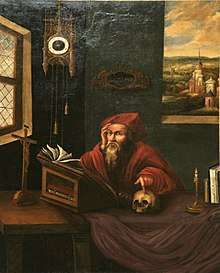

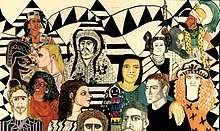

H
- It was also believed that snakes swallowed themselves, and this resulted in their being considered emblematic of the Supreme Creator who periodically reabsorbed His Universe back to Himself.
- Manly Palmer Hall, in http://books.google.co.in/books?id=huKHs2x2pfQC&pg=PA213 The Secret Teachings of All Ages], p. 213
- He saw all these forms and faces in a thousand relationships... become newly born. Each one was mortal, a passionate, painful example of all that is transitory. Yet none of them died, they only changed, were always reborn, continually had a new face: only time stood between one face and another.
- Herman Hesse, in Postmodernity and Cross-culturalism, p. 67
- Members of the Christian faith sometimes object to the doctrine of reincarnation on the grounds that to accept it would be a violation of Christian doctrine. While it is true that a Council of Constantinople in the sixth century A. D. pronounced belief in the pre-existence of the soul to be heretical, an examination of the Scriptures strongly suggests that the doctrine of rebirth was generally accepted in those days and that Our Lord himself believed it. Whether this be the case or not, the student of the Christian doctrine may well ask whether a decision made by a group of men in the sixth century should be regarded as binding today. This objection to reincarnation by Christians, on grounds of doctrinal fidelity, is sufficiently important to merit a somewhat detailed examination. From this it is found that reincarnation has neither been proclaimed nor condemned by any general council of the Church or by any creed accepted by a general council. The Council of Constantinople held in 543 A.D., which proclaimed heretical Origen’s teaching of the preexistence of the soul and affirmed the doctrine of special creation, was not a general council, and so not universally authoritative.
- Geoffrey Hodson in Reincarnation & Christianity, (1967)
- Origen taught that all souls were created at the beginning of creation as angelic spirits. In this condition they sinned and for their apostasy were transferred into material bodies. It was this view of preexistence which was proclaimed heretical. In any case, heresy thus condemned so long ago need not be regarded today as of major importance. Truth matters a great deal more and a condemned heresy may turn out to be a truth, as happened, for example, when a local church of Rome condemned Galileo’s heliocentric doctrine and forced him to recant. Galileo was right and the church in question was wrong. It is therefore quite legitimate for both clergy and laity of the Christian faith to preach and believe in both preexistence and reincarnation.
- Geoffrey Hodson in Reincarnation & Christianity, (1967)
- Reference has already been made to the command given by Christ to his followers: “Be ye therefore perfect, even as your Father which is in heaven is perfect” (Matt. 5:48). If man is granted but one life in which to accomplish this perfection, such attainment would be an impossibility for almost every human being; and Our Lord would have presented to mankind an ideal which is impossible of fulfillment. Since his wisdom was perfect, it is extremely unlikely that he would have taken this course. If, however, each man is granted almost unlimited time and every needed opportunity throughout successive lives in which to reach the goal which is set for him, then Our Lord’s words are less an injunction than a description of the destiny of every man. Indeed, in the original Greek and in the Revised Version, the behest becomes a simple statement of fact: “Ye therefore shall be perfect, as your heavenly Father is perfect.”
- Geoffrey Hodson in Reincarnation & Christianity, (1967)
- I am certain that I have been here as I am now a thousand times before, and I hope to return a thousand times.
- There is nothing against a permanently surviving spirit-individuality being in some way given off at death, as a definite wireless message is given off by a sending apparatus working in a particular ways. But it must be remembered that the wireless message only becomes a message again when it comes in contact with a new, material structure - the receiver. So with our possible spirit-emanation. It would never think or feel unless again "embodied" in some way. Our personalities are so based on body that it is really impossible to think of survival which would be in any true sense personal without a body of sorts. I can think of something being given off which could bear the same relation to men and women as a wireless message to the transmitting apparatus for mind.
- In the doctrine of transmigration, whatever its origin, Brahmanical and Buddhist speculation found, ready to hand, the means of constructing a plausible vindication of the ways of the Cosmos to man....yet this plea of justification is not less plausible than others; and none but very hasty thinkers will reject it on the ground of inherent absurdity. Like the doctrine of evolution itself, that of transmigration has its roots in the world of reality; and it may claim such support as the great argument from analogy is capable of supplying.
- Thomas Huxley, in “The Buddhism Primer: an Introduction to Buddhism” p. 45
I
- That swarm of ants that I observed, each one following the one ahead, have every one been Indra in the world of the gods by virtue of their own past action. And now, by virtue of their deeds done in the past, they have gradually fallen to the state of ants.
- Krsna, Indra and the Ants Indra and the Ants, Classical Hindu Mythology: A Reader in the Sanskrit Puranas, Pg. 321 by Cornelia Dimmitt
J

- Jains believe in reincarnation. Their souls, which are believed to be a unique substance in the universe, take different living forms in the cycle of birth, death, and rebirth. This cycle has been going on forever, the universe has no beginning or end, it has always been and always will be. The ultimate goal is to get rid of one's karma on their soul so that they may end this cycle. Once this goal is reached their soul has attained all knowledge and it rests in the heavens forever (Nirvana).
- The essential metaphysical ideas of Jainism are nine cardinal principles. The universe is divided into that which is alive and conscious (jiva) and matter which is not (ajiva). Jivas (souls) are either caught by karma (action) in the world of reincarnation (samsara) or liberated (mukta) and perfected (siddha).
- If it can be shown that an incorporeal and reasonable being has life in itself independently of the body and that it is worse off in the body than out of it; then beyond a doubt bodies are only of secondary importance and arise from time to time to meet the varying conditions of reasonable creatures. Those who require bodies are clothed with them, and contrariwise, when fallen souls have lifted themselves up to better things, their bodies are once more annihilated. They are thus ever vanishing and ever reappearing.
- St. Jerome writes about "convincing proof" that Origen teaches reincarnation in the original version of the book:quoted in Get The Church Fathers And More..., para 15
- I am no Hindu, but I hold the doctrine of the Hindus concerning a future state (rebirth) to be incomparably more rational, more pious, and more likely to deter men from vice than the horrid opinions inculcated by Christians on punishments without end.
- How man has come to be the complex being that he is and why, are questions that neither Science nor Religion makes conclusive answer to. This immortal thinker having such vast powers and possibilities, all his because of his intimate connection with every secret part of Nature from which he has been built up, stands at the top of an immense and silent evolution. He asks why Nature exists, what the drama of life has for its aim, how that aim may be attained. But Science and Religion both fail to give a reasonable reply. Science does not pretend to be able to give the solution, saying that the examination of things as they are is enough of a task; religion offers an explanation both illogical and unmeaning and acceptable but to the bigot, as it requires us to consider the whole of Nature as a mystery and to seek for the meaning and purpose of life with all its sorrow in the pleasure of a God who cannot be found out. The educated and enquiring mind knows that dogmatic religion can only give an answer invented by man while it pretends to be from God.
- What then is the universe for, and for what final purpose is man the immortal thinker here in evolution? It is all for the experience and emancipation of the soul, for the purpose of raising the entire mass of manifested matter up to the stature, nature, and dignity of conscious god-hood. The great aim is to reach self-consciousness; not through a race or a tribe or some favored nation, but by and through the perfecting, after transformation, of the whole mass of matter as well as what we now call soul. Nothing is or is to be left out. The aim for present man is his initiation into complete knowledge, and for the other kingdoms below him that they may be raised up gradually from stage to stage to be in time initiated also. This is evolution carried to its highest power; it is a magnificent prospect; it makes of man a god, and gives to every part of nature the possibility of being one day the same; there is strength and nobility in it, for by this no man is dwarfed and belittled, for no one is so originally sinful that he cannot rise above all sin. Treated from the materialistic position of Science, evolution takes in but half of life; while the religious conception of it is a mixture of nonsense and fear. Present religions keep the element of fear, and at the same time imagine that an Almighty being can think of no other earth but this and has to govern this one very imperfectly. But the old theosophical view makes the universe a vast, complete, and perfect whole.
- This is the most ancient of doctrines and is believed in now by more human minds than the number of those who do not hold it. The millions in the East almost all accept it; it was taught by the Greeks; a large number of the Chinese now believe it as their forefathers did before them; the Jews thought it was true, and it has not disappeared from their religion; and Jesus, who is called the founder of Christianity, also believed and taught it. In the early Christian church it was known and taught, and the very best of the fathers of the church believed and promulgated it.
- In the case of the musician Bach we have proof that heredity counts for nothing if the Ego is not advanced, for his genius was not borne down his family line; it gradually faded out, finally leaving the family stream entirely. So, too, the coming of idiots or vicious children to parents who are good, pure, or highly intellectual is explained in the same way. They are cases where heredity is set at nought by a wholly bad or deficient Ego.
http://www.theosophy.org/Judge/Ocean%20of%20Theosophy/AOcean.htm
- It has been often thought that the opposition to reincarnation has been solely based on prejudice, when not due to a dogma which can only stand when the mind is bound down and prevented from using its own powers. It is a doctrine the most noble of all, and with its companion one of Karma, next to be considered, it alone gives the basis for ethics. There is no doubt in my mind that the founder of Christianity took it for granted and that its present absence from that religion is the reason for the contradiction between the professed ethics of Christian nations and their actual practises which are so contrary to the morals given out by Jesus.
- For esoteric students the concept of rebirth is not an abstract belief based on theory and thus open to debate. For them it is a well-established concept which has been part of the Ancient Wisdom teaching for thousands of years, and has subsequently been verified over and over again in daily life. The principle is primarily based on the duality of man.
- Fortunately for man, we do have a loving Father, on whose wisdom and justice we can depend. The shortcoming lies with man himself who can neither understand nor interpret that with which he is surrounded. He can only distinguish one small facet of the Truth and of a most involved system, and therefore bases his judgement on totally inadequate evidence. But where then has man failed in his reasoning? The answer and crux of the whole problem lies in the misleading and erroneous assumption that the evolution and redemption of the human soul must be completed in a single spell of life on Earth.
- Aart Juriaanse as quoted in from an excerpt published by (Mindlight)
K
- A master who had been cruel to his slaves might become a slave in his turn, and undergo the torments he had inflicted on others. He who has wielded authority may, in a new existence, be obliged to obey those who formerly bent to his will. Such an existence may be imposed upon him as an expiation if he have abused his power. But a good spirit may also choose an influential existence among the people of some lower race, in order to hasten their advancement; in that case, such a reincarnation is a mission.
- Alan Kardec in The Spirits' Book, p. 170.
- Yoruba also believe in reincarnation. The spirits of persons who have lived and died may come back in the new baby, usually to someone in the same family... that with every incarnations the spirit chooses and acquires a new destiny.
- Winny Koster, in Secret Strategies: Women and Abortion in Yoruba Society, Nigeria, p. 66
- The whole of Asia believes in reincarnation, in being reborn in another life. When you enquire what it is that is going to be born in the next life.
L
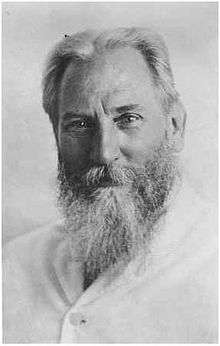
- This is a school in which no pupil ever fails; every one must go on to the end. He has no choice as to that; but the length of time which he will take in qualifying himself for the higher examinations is left entirely to his own discretion. The wise pupil, seeing that school-life is not a thing in itself, but only a preparation... endeavours to comprehend as fully as possible the rules of his school, and shapes his life in accordance with them as closely as he can, so that no time may be lost in the learning of whatever lessons are necessary.
- Charles Webster Leadbeater, A Textbook of Theosophy, Chapter VII (1912)
- Theosophy explains to us the laws under which this school-life must be lived, and in that way gives a great advantage to its students. The first great law is that of evolution... The second great law under which this evolution is taking place is the law of cause and effect. There can be no effect without its cause, and every cause must produce its effect. They are in fact not two but one, for the effect is really part of the cause, and he who sets one in motion sets the other also. There is in Nature no such idea as that of reward or punishment, but only of cause and effect. Anyone can see this in connection with mechanics or chemistry...
- Charles Webster Leadbeater, A Textbook of Theosophy, Chapter VII (1912)
- According to which the man who sends out a good thought or does a good action receives good in return, while the man who sends out an evil thought or does an evil action, receives evil in return with equal accuracy—once more, not in the least a reward or punishment administered by some external will, but simply as the definite and mechanical result of his own activity. The action of this law affords the explanation of a number of the problems of ordinary life. It accounts for the different destinies imposed upon people, and also for the differences in the people themselves. If one man is clever in a certain direction and another is stupid, it is because in a previous life the clever man has devoted much effort to practise in that particular direction, while the stupid man is trying it for the first time.
- Charles Webster Leadbeater, A Textbook of Theosophy, Chapter VII (1912)
- Another most valuable result of his Theosophical study is the absence of fear. Many people are constantly anxious or worried about something or other; they are fearing lest this or that should happen to them, lest this or that combination may fail, and so all the while they are in a condition of unrest; and most serious of all for many is the fear of death... He realizes the great truth of reincarnation. He knows that he has often before laid aside physical bodies, and so he sees that death is no more than sleep—that just as sleep comes in between our days of work and gives us rest and refreshment, so between these days of labour here on earth, which we call lives, there comes a long night...
- Charles Webster Leadbeater, A Textbook of Theosophy, Chapter VII (1912)
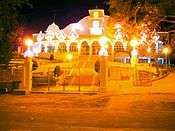
- Many concepts like reincarnation, meditation, yoga and others have found worldwide acceptance. It would not be surprising to find Hinduism the dominant religion of the twenty-first century. It would be a religion that doctrinally is less clear-cut
- Sushama Londhe, in Tribute to Hinduism: Thoughts and Wisdom Spanning Continents and Time about India and Her Culture, p. 254
- Dasavatar (ten descendents) is collective name for the ten avatars (incarnations on earth) of the god Vishnu. In each case Vishnu takes form to restore the cosmic equilibrium when it has been thrown out of balance by the action of a particular demon.
M
- The disciples ask Jesus: Who did sin, this man, or his parents, that he was born blind?" (John 9:2-3) How could a man sin before he was born, unless the sin was committed in another life? The apostles are not asking what kind of sin resulted in blindness, but *who* sinned, taking for granted that the act of sinning itself brought about this dire result.
Furthermore, the sin could have been committed either by the man in a previous existence, or by his parents. This implies both that the sins of the parents are visited upon the children, which is a biblical doctrine, and that the soul exists and therefore pays for the transgressions of previous lives.
Jesus does not rebuff the apostles for asking such a question. If the doctrine had been alien to his mind, he would have told them that they were talking nonsense.- Jeanine Miller, in Reincarnation and karma in the Bible (Share International)
N
- What, if some day or night a demon were to steal after you into your loneliest loneliness and say to you: This life as you now live it and have lived it, you will have to live once more and innumerable times more... Would you not throw yourself down and gnash your teeth and curse the demon who spoke thus? Or have you once experienced a tremendous moment when you would have answered him: You are a god and never have I heard anything more divine.
- Friedrich Nietzsche, in Results Nietzsche's Postmoralism, p. 237
O
P
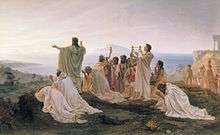

- The Pythagorean doctrine prevails among the Gauls' teaching that the souls of men are immortal, and that after a fixed number of years they will enter into another body.
- Alexander Cornelius Polyhistor in the 1st century BC on Celts, quoted in The Druids, p. 51
- Sikhs believe in reincarnation. This means when you die, your soul moves on to another body. This cycle of dying and being born again happens over and over again. It goes on until with God’s help you become close enough to God to break out of the cycle.
- Sue Penney, in Sikhism, p. 46
- Believing in reincarnation makes a difference to what Sikhs believe about death. They say it is like going to sleep. You go to sleep when you are tired, and wake up ready for another day. In the same way, you die, and are born again to a new life. Of course, friends and relations are sad that the person they love is not with them, but Sikhism teaches them to remember that the person has gone on to another life.
- Sue Penney, in “Sikhism”, p. 46
- Soul is older than body. Souls are continually born over again into this life. The idea of Reincarnation was spread widely in Greece and Italy by Pythagoras, Empedocles, Plato, Virgil and Ovid. It was known to the Neo-Platonists, Plotinus and Proclus. Plotinus says: "The soul leaving the body becomes that power which it has most developed. Let us fly then from here below and rise to the intellectual world, that we may not fall into a purely sensible life by allowing ourselves to follow sensible images...."
- Plato, quoted in "Reincarnation" by Swami Abhedananda
- The company of disembodied souls is distributed in various orders. The law of some of them is to enter mortal bodies, and after certain prescribed periods be again set free.
- Philo of Alexandria, a contemporary of Christ, preached amongst the Hebrews the Platonic idea of the pre-existence and rebirth of human souls. **Quoted in "Reincarnation" by Swami Abhedananda
- The strength of the doctrine of reincarnation lies in itself, in its appeal to our intellectual and logical faculties, in its own persuasiveness, in the manner in which it answers problems, in the hope that it gives, in the light that it sheds upon collateral questions of human life, and indirectly upon the problems of the physical world surrounding us. It is through and by reincarnation as a natural fact, that we learn the beauty of the inner life and thereby grow, developing a larger comprehension, not only of ourselves, but of the loveliness inherent in the harmony of the universal laws.
- G. de Purucker, Man in Evolution, Chapter 10 (1941)
Q
R

- I feel as though I have lived many lives, experienced the heights and depths of each and like the waves of the ocean, never known rest. Throughout the years, I looked always for the unusual, for the wonderful, for the mysteries at the heart of life.
- The human soul continues to live after death precisely in the same manner as before. The souls of animals also, to a certain degree, seem to have been considered as having an existence independent of the body, and continuing after its death. Here and there traces have also been found of a belief in the migration of souls, both between dead and living men, and between men and animals.
- A fully developed psychology will not exist until reincarnation is accepted as a fact.
- Jane Roberts, in The Early Sessions: Book 7
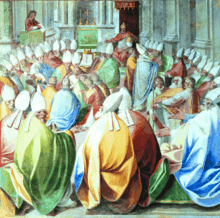
- You write, "No wonder Christ did not find it possible to reveal this truth (the law of Reincarnation) directly and openly to the undeveloped human minds." But I think it would be more correct to say that although the law of Reincarnation was a cornerstone of every ancient religion of the East... already in the days of Jesus this law was badly distorted by the priesthood and maintained its purity only among individual sects. In the New Testament we have plenty of proof regarding this knowledge...
- Others pay attention to the law of Reincarnation...a cornerstone of all the most ancient religions. From these sources Christianity later borrowed all its symbols and ceremonies. ...We should not forget that the law of Reincarnation was rejected only in the sixth century by the Council of Constantinople. And we are supposed to accept as revelation and dogma the authority of the Fathers of the Church who, with great seriousness, discussed such problems as "How many spirits may be placed on the end of a needle?" or such similar pearls as "Has woman a soul?
- Thus, we should find that the law of Reincarnation was rejected by the Council of Constantinople in the sixth century A.D., in spite of the fact that the Gospel itself contains words of Christ that have obvious reference to the law of Reincarnation. If people would take the trouble to study seriously the fundamental Teaching of Christ, and if possible in the original language of the Gospels instead of being satisfied with the school textbooks, they would discover a new meaning in the words, and the true, great Image of Christ would be revealed to their spiritual sight.
- Helena Roerich, Letters I, (12 September 1934)
- Just think! Only in the sixth century A.D. was the dogma of Reincarnation rejected by the Second Council of Constantinople! Thus the contrivances of greedy and petty minds were stratified and become dogma for the following generations which did not yet dare to think independently... And there are so many affirmations in the Gospel about Reincarnation, actually in the words of Christ himself. The Fathers of the Church committed great sin by eliminating this law of the Highest Justice from the consciousness of the flocks entrusted to them. But we are no less sinful in our passive indulgence, and non-resistance to evil.
- Don’t grieve.
Anything you lose comes round in another form.
The child weaned from mother’s milk
Now drinks wine and honey mixed.
God’s joys move from unmarked box to unmarked box,
from cell to cell.
As rainwater,
down into flowerbed
And roses, up from ground.
- I died as a mineral and became a plant,I died as a plant and rose to animal,
I died as an animal and I was Man.
Why should I fear? When was I less by dying?- Jalaluddin Rumi, in Sai Baba of Shirdi (English). p. 36
S
- This idea of reincarnation is... most essential for the moral well-being of the human race. Why do we not remember our past? Why should we remember the past? What has come to this brain is the resultant, the sum total of the impressions acquired in our past, with which the mind has come to inhabit the new body. Yet at the same time, … there are instances which show that this memory does come.….No other theory except that of reincarnation accounts for the wide divergence that we find between man and man in their powers to acquire knowledge.
- Nirvana is a state of pure blissful knowledge.. It has nothing to do with individual. The ego or its separation is an illusion. The goal of man is to preserve his Karma and to develop it further – when man dies his karma lives and creates for itself another carrier.
- Erwin Schrödinger, My View of the World (1961)
- Nowadays, there is little doubt that early Christians gave more credence to the concept of rebirth than was later the case. The main figure responsible for this change was no churchman but an ambitious, worldly and powerful figure Emperor Justinius. In the year 553, quite independently of the Pope, Justinius had the teachings of the church father Origen (185-253) banned by a synod. Origen had spoken out in unmistakable terms on the question of the repeated incarnations of the soul: "Each soul enters the world strengthened by the victories or weakened by the defects of its past lives. Its place in this world is determined by past virtues and shortcomings." De Principalis.
- Reincarnation is one of the most extraordinary and potentially significant religious concepts. I am confident that there truly is such a thing as living again, that the living spring from the dead, and that the souls of the dead are in existence.
- I am confident in the belief that there truly is such a thing as living again, and that the living spring from the dead, and that the souls of the dead are in existence, and that the good souls have a better portion than the evil.
- Socrates, in Phaedo
- Yoga says instinct is a trace of an old experience that has been repeated many times and the impressions have sunk down to the bottom of the mental lake. Although they go down, they aren’t completely erased. Don’t think you ever forget anything. All experiences are stored in the chittam [mind]; and, when the proper atmosphere is created, they come to the surface again. When we do something several times it forms a habit. Continue with that habit for a long time, and it becomes your character. Continue with that character and eventually, perhaps in another life, it comes up as instinct.
- There is no death. How can there be death if everything is part of the [[w:Deity|Godhead? The soul never dies and the body is never really alive.
- John the Baptist was according to the Jews a second Elijah; Jesus was believed by many to be the re-appearance of some other prophet. (See Matt, xvi, 14, also xvii, 12.) Solomon says in his Book of Wisdom: "I was a child of good nature and a good soul came to me, or rather because I was good I came into an undefiled body."
- Solomon quoted in "Reincarnation" by Swami Abhedananda
- The idea of reincarnation forms an important principle in the religion of Hinduism adhered to by the great majority of the inhabitants of India...Its doctrines and practices do not differ much today than what they were thousands of years ago. The persuasions of Muslim and Christian conquerors and missionaries have had little impact on the continuing belief of all Indians in the basic ideas of Hinduism.
- Opinions differ whether human souls can be reincarnated on the earth or not. In 1936 a very interesting case was thoroughly investigated and reported by the government authorities in India. A girl (Shanti Devi from Deli) could accurately describe her previous life (at Muttra, five hundred miles from Deli) which ended about a year before her 'second birth'. She gave the name of her husband and child and described her home and life history. The investigating commission brought her to her former relatives, who verified all her statements. Among the people of India reincarnations are regarded as commonplace; the astonishing thing for them in this case was the great number of facts the girl remembered. This and similar cases can be regarded as additional evidence for the theory of the indestructibility of memory.
- Professor Gust Stromberg, in “The Buddhism Primer : an Introduction to Buddhism”, p. 45
T
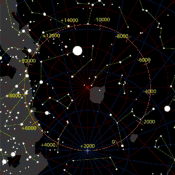
Clad in the light of a pole-star, piercing the darkness of time.
You become an image of what is remembered forever... ~Rabindranath Tagore

- Unending Love
I seem to have loved you in numberless forms, numberless times...
In life after life, in age after age, forever.
My spellbound heart has made and remade the necklace of songs,
That you take as a gift, wear round your neck in your many forms,
In life after life, in age after age, forever.
Whenever I hear old chronicles of love, it's age old pain,
It's ancient tale of being apart or together.
As I stare on and on into the past, in the end you emerge,
Clad in the light of a pole-star, piercing the darkness of time.
You become an image of what is remembered forever.
You and I have floated here on the stream that brings from the fount.
At the heart of time, love of one for another.
We have played along side millions of lovers,
Shared in the same shy sweetness of meeting,
the distressful tears of farewell,
Old love but in shapes that renew and renew forever.
Today it is heaped at your feet, it has found its end in you
The love of all man's days both past and forever:
Universal joy, universal sorrow, universal life.
The memories of all loves merging with this one love of ours -
And the songs of every poet past and forever.
- To Indians the idea of the transmigration of the soul from animal to man, and man to animal, does not seem strange, and so from our scriptures pity for all sentient creatures has not been banished as a sentimental exaggeration. When I am in close touch with Nature in the country, the Indian in me asserts itself and I cannot remain coldly indifferent to the abounding joy of life throbbing within the soft down-covered breast of a single tiny bird.
- Rabindranath Tagore, Glimpses of Bengal: A Selection of Letters (Macmillan and Co., 1921), 9 August 1894
- Consider for example the past-life memories of people under hypnosis. Whether these are actual memories of previous lives or not has yet to be proved, but the fact remains, the human inconscious has a natural propensity for generating at least apparent memories of previous incarnations. In general, the orthodox psychiatric community ignores this fact. Why?
- Michael Talbot in The Holographic Universe, p 295 (1991)
- It may be that no life is found,
Which only to one engine bound
Falls off, but cycles always round.- Alfred Tennyson, http://books.google.co.in/books?id=gV66Yu3ITu0C&pg=PA126 The Broadview Anthology of Victorian Poetry and Poetic Theory, Concise Edition], p. 126
- As far back as I can remember I have unconsciously referred to the experiences of a previous state of existence.
- I (my ghost) was taken to the place where the sun sets (the west).... While at that place, I thought I would come back to earth again, and the old man with whom I was staying said to me, “My son, did you not speak about wanting to go to the earth again?” I had, as a matter of fact, only thought of it, yet he knew what I wanted. Then he said to me, “You can go, but you must ask the chief first.” Then I went and told the chief of the village of my desire, and he said to me, “You may go and obtain your revenge upon the people who killed your relatives and you.” Then I was brought down to earth.... There I lived until I died of old age.... As I was lying [in my grave], someone said to me, “Come, let us go away.” So then we went toward the setting of the sun. There we came to a village where we met all the dead. … thence I came to this earth again for the third time, and here I am. I am growing through the same that I knew before.
- The Winnebago Indian Crashing Thunder writing on his life which also pertained to reincarnation of his brother-in-law Thunder Cloud who died young. This is from an account of Thunder Cloud’s reincarnations, translated and annotated by Paul Radin, in Amerindian Rebirth: Reincarnation Belief Among North American Indians and Inuit, p. 60-61
- The case of Thunder Cloud exemplifies another recurrent theme: that those who die in battle are especially privileged or likely to be reborn with their memory of previous life intact.
- In "Amerindian Rebirth: Reincarnation Belief Among North American Indians and Inuit" P.58
- As we live through thousands of dreams in out present life, so is our present life only one of many thousands of such lives which we enter from the other more real life... and then return after death. Our life is but one of the dreams of that more real life, and so it is endlessly, until the very last one, the very real life of God.
- Count Leo Tolstoy, in Self-realization, Volumes 49-51, p. 45
- Two Voices:
Or, if through lower lives I came--
Tho' all experience past became,
Consolidate in mind and frame--
I might forget my weaker lot;
For is not our first year forgot?
The haunts of memory echo not.- Alfred Tennyson, in "Reincarnation" quoted by Swami Abhedananda
U
V
- Burn him not up, nor quite consume him, Agni: let not his body or his skin be scattered. O Jatavedas, when thou hast matured him, then send him on his way unto the Fathers... let thy fierce flame, thy glowing splendour, burn him With thine auspicious forms, o Jatavedas, bear this man to the region of the pious... Again, O Agni, to the Fathers send him who, offered in thee, goes with our oblations. Wearing new life let him increase his offspring: let him rejoin a body, Jatavedas then.
- Rig Veda states in Book 10 Part 02, Hymn XVI, quoted in Vedic Philosophy of Values, p. 86

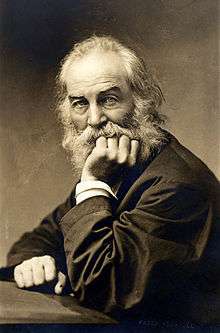
- The latest scientific men are coming back to the ancient sages, and as far as they have done so, there is perfect agreement. They admit that each man and each animal is born with a fund of experience, and that all these actions in the mind are the result of past experience. "But what," they ask, "is the use of saying that that experience belongs to the soul? Why not say it belongs to the body, and the body alone? Why not say it is hereditary transmission?" This is the last question. *Why not say that all the experience with which I am born is the resultant effect of all the past experience of my ancestors? The sum total of the experience from the little protoplasm up to the highest human being is in me, but it has come from body to body in the course of hereditary transmission. Where will the difficulty be? This question is very nice, and we admit some part of this hereditary transmission. How far? As far as furnishing the material. We, by our past actions, conform ourselves to a certain birth in a certain body, and the only suitable material for that body comes from the parents who have made themselves fit to have that soul as their offspring.
- Vivekananda’s lecture delivered in New York, 26th January 1896, in The Cosmos: The Microcosm
- Doctrine of reincarnation is neither absurd nor useless. It is not more surprising to be born twice than once.
W
- Jane's attitude toward reincarnation (like mine) was strongly ambivalent. the idea of physical life being expressed in many historical situations made emotional and intuitive sense to her. Intellectually, however, she was highly suspicious of the standard notion of reincarnation, particularly as any kind of pat answer to present problems. Thus, when class started to experience the theory of reincarnation in emotionally-charged drama form, Jane would often find herself in a most uncomfortable one-foot-on-the-dock, one-foot-in-the-boat position, at once intellectually scandalized and intuitively involved. Even on those occasions when the inner events would "click," or when Seth gave past-life information that made complete sense to people, Jane worried about it for days afterwards. What was the meaning of such memories? Where did they come from? Were we creating the events through suggestion, combined with a need for emotional outlet? Or did we actually remember people who lived -- in our terms -- long before any of us were born? these questions demanded the class maintain a balance, from which Jane never let things stray too far.
- Susan M. Watkins in Conversations With Seth, Volume 1, p. 173
- I know I am deathless...
We have thus far exhausted
trillions of winters and summers,
There are trillions ahead, and
trillions ahead of them.
- In Hebrew literature the idea of reincarnation seems to appear for the first time in the writings of Anan ben David (eighth century) who used the term gulgul to refer to the transmigration of souls. Within Judaism, belief in reincarnation is closely associate with esoteric tradition known as Kabbalah. The earliest documented Kabbalistic writing is called the Book of Formation (Sepher Yetzirah)...Within this tradition of Judaism, the primary text that describes the complex laws of reincarnation is The Gate of Reincarnations (Sha’ar Ha’Gilgulim), based on the writings of the master Kabbalist Rabbi Isaac Luria (1534-72) and compiled by his disciple, Rabbi Chaim Vital. The Book of Splendor (Sepher ha Zohar) gives a rationale for reincarnation that is virtually identical to that of early Christian theologian Origen.
- The New Testament declared that John was imbued with Elijah’s “spirit and power”, which could easily be interpreted as his being a reincarnation of Elijah. But theologians have interpreted these passages in various ways.
- B. Alan Wallace, in ”Mind in the Balance: Meditation in Science, Buddhism, and Christianity”, p. 10
- It is possible that in his many travels, Pythagoras may have learned this [Pythagoras theorem] and other branches of knowledge, especially pertaining to meditation, from Indian sources. He is also known for his belief in reincarnation, according to which the soul is immortal and is reborn in both human and animal bodies. Legend has it that he claimed to be able to recall up to twenty of his own and other past lives.
- B. Alan Wallace, in ”Mind in the Balance: Meditation in Science, Buddhism, and Christianity”, p. 8
- According to a Harrris Poll taken in 1998, 23 percent of American public professed belief in reincarnation, including 23 percent of Christians and 32 percent of non-Christians. Similar surveys recently taken in the United Kingdom indicate that 30 to 35 percent of the British population belive in reincarnation.
- B. Alan Wallace, in ”Mind in the Balance: Meditation in Science, Buddhism, and Christianity”, p. 101
- Belief in reincarnation is present in all schools of Buddhism, initially stemming from Buddha’s experience of enlightenment. He concluded that three things are necessary for the emergence of a human psyche and the formation of a human embryo; the parents sexual intercourse; ovulation in the mother; the presence of a being in the intermediate state who has the karma to be reborn to those parents at the time. While such beings are influenced by their karma, or actions in their past lives, they also choose the parents to whom they shall be born. So reincarnation is not a matter of predetermination where the future is totally determined by past events.
- B. Alan Wallace, in ”Mind in the Balance: Meditation in Science, Buddhism, and Christianity”, p. 104
- Intimations of Immortality
The soul that rises with us, our life's star,
Hath had elsewhere its setting,
And cometh from afar.- William Wordsworth, in "Intimations of Immortality" quoted in "Reincarnation" by Swami Abhedananda
- Leaves of Grass:
As to you, Life, I reckon you are the leavings of many deaths,
No doubt I have died myself ten thousand times before.- Walt Whitman, in "Intimations of Immortality" quoted in "Reincarnation" by Swami Abhedananda
